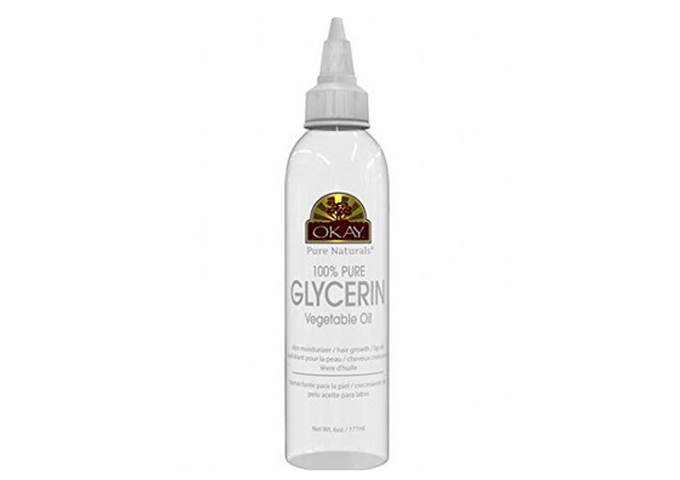
Sometimes chemists come up with really cool compounds that are able to fix a couple of vital issues, and in other instances, an individual will discover a substance with multiple uses. Glycerine, which also goes by the name of glycerol, is something that falls under this category.
First discovered in 1779, by Carl Wilhelm, a Swedish scientist, the discovery was made accidentally when he boiled lead monoxide and olive oil together. He named the resulting substance “the sweet principle of fat” due to its slightly sweet taste. Later, Michel-Eugène Chevreul, a French chemist named this substance glycerine from glykys (a Greek word for sweet).
Glycerine is a viscous, transparent, non-toxic, water-soluble liquid that has a very high boiling point. It is present in both animal and vegetable fats. Chemically, it performs in a similar way to alcohol, in the way that it reacts in certain situations, yet it is generally stable. Here are some of the common uses relating to this miraculous substance:
1. Soap
Glycerine is one of the common ingredients in most soaps, yet strangely enough, the process to make soap is also one of the methods to create glycerine. In some instances, chemists formulate a soap that is industrially manufactured as the means to create glycerine (the commercial name for glycerol).
The production process for glycerine involves a saponification process. This involves creating soap by changing fat or oil into glycerine and soap by exposing heat to the lipids and then adding an alkali-based substance such as lye, or hydroxide. The melt-and-pour soaps which are usually moulded into interesting shapes typically contain a high content of glycerine.
There is a special type of Bonve rotary lobe pump which is used to transfer liquid soap, neat soap, and laundry soap. There are many models and brands available, each with outstanding value. These liquid soap transfer pumps are efficient, durable, and completely waterproof
2. Skin And Hair Care Products
Since glycerine is classified as a humectant, which means it is capable of attracting and binding moisture, it is also one of the common ingredients in hair care and beauty products that are supposed to moisturise, such as conditioners, lotions, and even shampoos. Haircare products that contain glycerine can stop the hair from splitting or over-drying. It is also used in specific types of shampoo products to treat itchy scalp or dandruff.
Skincare products and lotions also use glycerine as a moisturiser. They chemically hold and attract moisture. Lotions, for example, typically contain three primary ingredients. These include an emollient that smooths rough cellular spots, a humectant, and an occlusive (which offers a protective barrier to stop the moisture from escaping).
3. Food
Glycerine is also a useful food additive since it serves several different functions. Since it is classified as a “sugar alcohol” it can perform as a type of sweetener, even though it is about 60 to 75% as sweet when compared to sugar.
Due to the moisture-retaining properties of glycerine, it assists with preserving energy bars, cakes, and bread, which helps to stop these products from becoming dry. The vicious nature can also add smoothness and thickness to liquids. Glycerine is a common ingredient found in cake icings, condiments, drinks, canned soup, soft candies, chewing gum, and marshmallows.
4. Pharmaceuticals
Due to the natural sweetness of glycerine, it is also used in the production of medications such as lozenges and syrups to make them more palatable. Sweetness is only one of the benefits of glycerine used in medications, it is also an effective thickener in topical ointments. Glycerine suppositories are also useful when it comes to attracting water out of the colon so things can move along smoothly. Glycerine is also useful as a type of excipient, which is a vehicle that is neutral for active ingredients present in products such as gel capsules, ear drops, and eye drops. Glycerine is also used as one of the mediums to freeze things like red blood cells, sperm, and other types of living tissues.
5. Plastics, Inks, And Paints
Glycerine has loads of important industrial applications. It is one of the important building blocks of resins and paints used to coat items such as wires. In plastics, it is used as a type of softener, and it is also used widely in food packaging since it prevents shrinkage and it is non-toxic.
6. Vaping Liquid
Vegetable glycerine is the common base used in a variety of vaping fluids that are used in e-cigarettes. Some vapers prefer vegetable glycerine since the high content of glycerine produces a highly visible aerosol.
